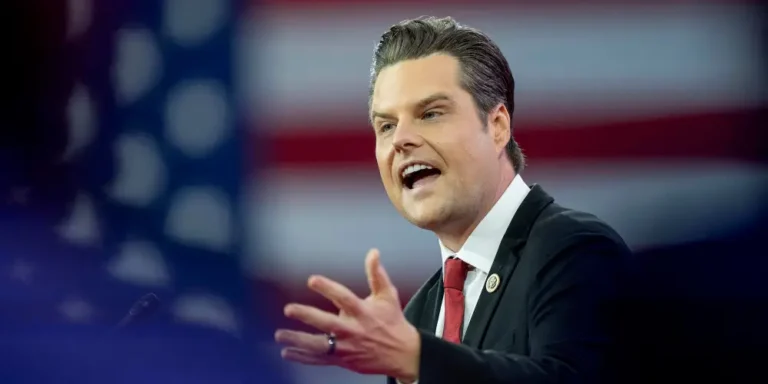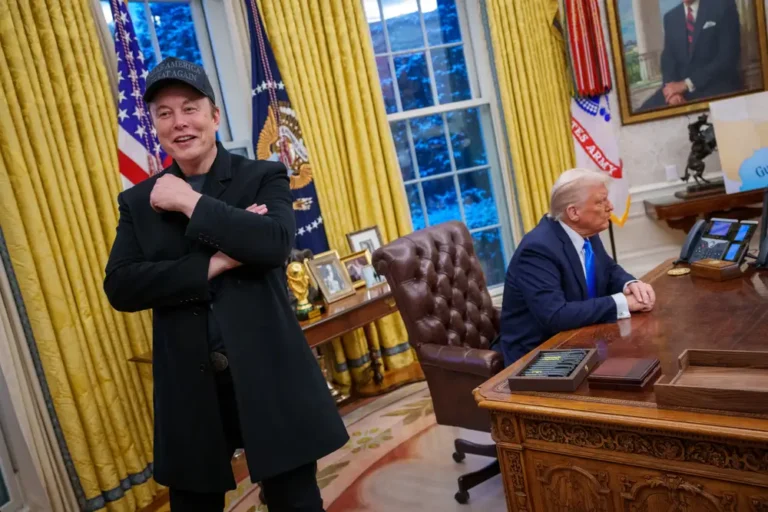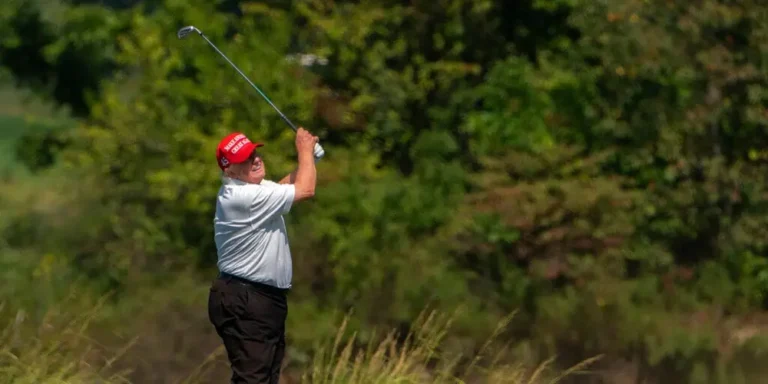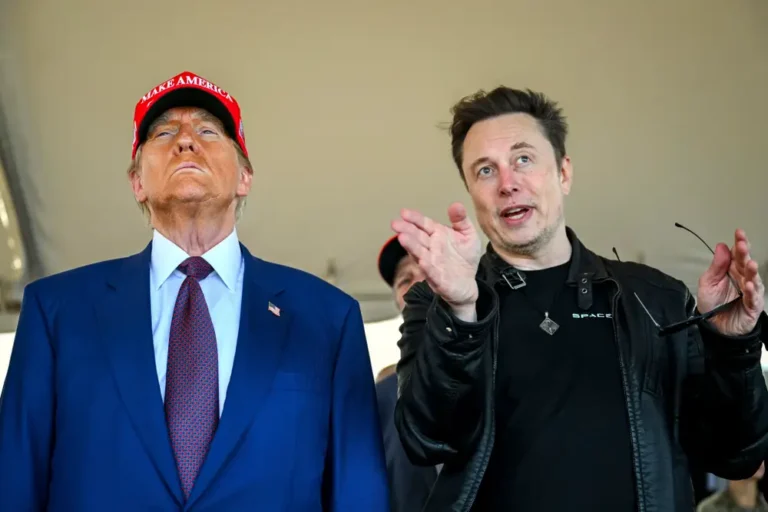Trump picked a Project 2025 coauthor to run the FCC. Here’s what it means for Big Tech.
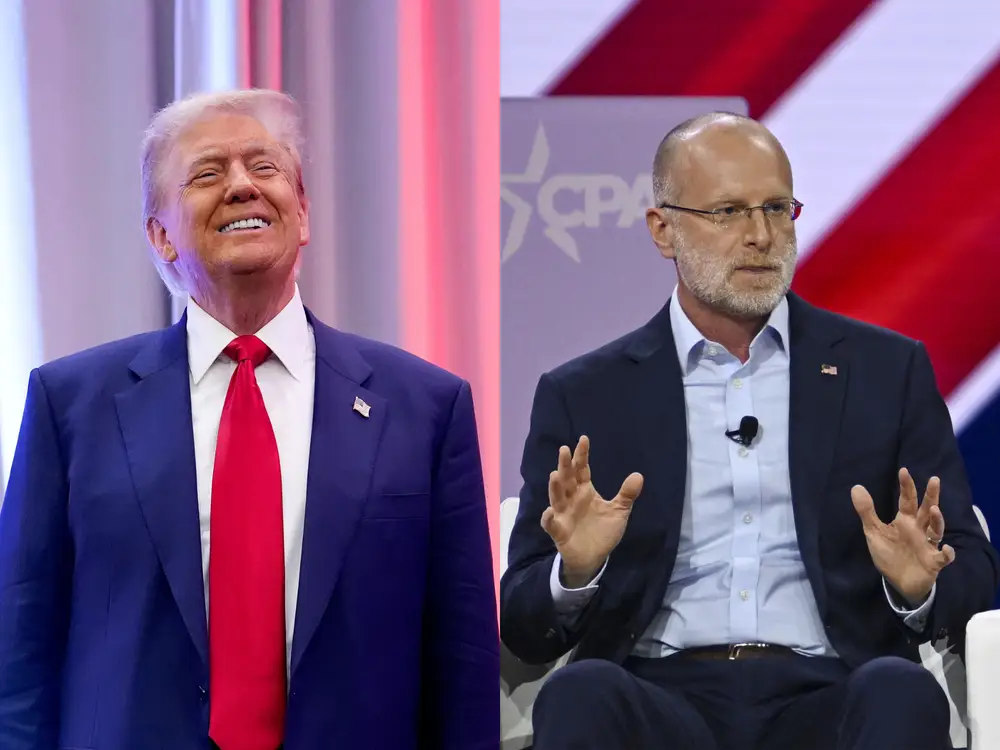
Trump’s pick to lead the FCC, Brendan Carr, wants Big Tech to start contributing to federal funds and to be compelled not to censor content.
On Sunday, President-elect Donald Trump announced his nomination for the chairman of the Federal Communications Commission, or FCC: Brendan Carr.
Carr, who has worked at the FCC since 2012, is the senior Republican on the commission. He is also the author of the FCC chapter of Project 2025, the conservative playbook that’s raised questions among Democrats and Republicans alike for pushing policies like eliminating the Department of Education.
In a Truth Social post announcing the nomination, Trump wrote that Carr is a “warrior for Free Speech.”
“He will end the regulatory onslaught that has been crippling America’s Job Creators and Innovators, and ensure that the FCC delivers for rural America,” Trump added.
Carr thanked Trump for the nomination, writing on X that he is “humbled and honored to serve as Chairman of the FCC.”
The role requires Senate approval. If Carr does become the chairman of the FCC, the appointment stands to have serious impacts on Big Tech.
Carr’s stance on Big Tech
In his Project 2025 chapter, Carr writes that one of his four main goals for the FCC is “Reining in Big Tech.”
“The FCC has an important role to play in addressing the threats to individual liberty posed by corporations that are abusing dominant positions in the market. Nowhere is that clearer than when it comes to Big Tech and its attempts to drive diverse political viewpoints from the digital town square,” he wrote.
“It is hard to imagine another industry in which a greater gap exists between power and accountability,” he added.
Carr outlined several steps for the FCC to take, including publicizing a new stance on the law’s approach to Section 230, a part of the Communications Act of 1934.
Section 230 states that online service providers aren’t legally treated as publishers of their users’ posts and can’t be held liable for any actions taken “in good faith” to moderate or censor inappropriate content.
Carr said the FCC should push for limitations to those rules, which he said have been abused to give Big Tech corporations immunity on censorship. His interpretation of the section would give Big Tech immunity only against being compelled to take down content.
Ultimately, Carr wants to revamp Section 230 as a whole, in favor of a set of antidiscrimination rules that prevent companies from censoring posts, with exceptions for illegal content like child sex abuse images.
In place, consumers should be allowed to choose their own fact-checkers and filters, Carr said.
He proposed that Big Tech firms be compelled to make public their traffic and monetization algorithms, saying they now operate in a “black box.”
Carr also wants Big Tech firms to start contributing to the Universal Service Fund, a billion-dollar program run by the FCC that helps underprivileged communities get access to telecommunications services.
Carr wants a stronger push away from China — and TikTok
Another of Carr’s main points in his Project 2025 chapter is to further decouple the US tech industry from China’s.
Raising concerns about US national security, Carr called for a ban on TikTok, saying it gives China an opportunity to influence how millions of Americans get their news and information.
He also called for the US to expand its Covered List, which tracks foreign tech companies deemed a risk to national security, and to prevent American firms from providing cloud computing services to China.
Carr also wants the US to publish a list of FCC-approved organizations with at least 10% ownership from “foreign adversarial governments” like China, Russia, and Iran.
To smoothen the push away from China, Carr suggested the US contribute another $3 billion in federal funding to help companies that use Chinese tech find and integrate alternatives.
Carr’s two other points in his Project 2025 chapter are to increase accountability measures for federal tech programs and to drive hard to develop 5G infrastructure.


